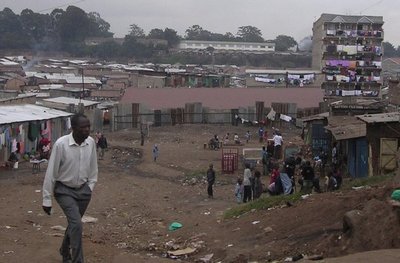August 21, 2008
Extraordinary response to global health request for proposals
By Bobbi Nodell
News & Community Relations
In response to a campuswide invitation for concept proposals for interdisciplinary global health initiatives and centers, the Department of Global Health received an impressive 41 proposals from faculty representing all 17 UW colleges and schools.
“This shows how many UW programs are invested in improving the lives of people worldwide,” said Dr. King Holmes, the William H. Foege endowed chair of the department.
To foster new ideas from all disciplines, the department issued a request for proposals May 21 for Inter-School/ Departmental Initiatives and Interdisciplinary Discovery, Learning and Service Centers.
“Global health needs creative ideas from across disciplines to make progress,” said Dr. Judy Wasserheit, the vice chair.
In all, the department received 18 proposals for centers and 23 for initiatives.
The Department of Global Health received 16 proposals that addressed a reduction of major disparities in health and nine that addressed implementation delivery and scale-up.
These proposals included linkages with adolescent and child health, chronic disease, nutrition, trauma and mental health, emergency and essential surgical care, antimicrobial susceptibility, surveillance, indigenous health, workforce development, pharmacovigilance, implementation science, radiology, oral health, community health training, chemistry, injury control, breast cancer, cross-cultural language and health care training, doctoral and post-doctoral education and disability.
The department also received 16 proposals dealing with issues beyond just health but that addressed sustainable, innovative programs that target better understanding or improvements in health by addressing community-level factors and/or global determinants of health. These included proposals with linkages with engineering, innovative technologies, information technology and informatics, social justice, business and social entrepreneurship, communication, local service learning, urban planning, demography, vulnerability and globalization research, eco-health, diplomacy, safe drinking water, tobacco, children’s environmental health and global governance.
The department hopes to provide financial and nonfinancial support for up to five initiatives and two to four centers.
Wasserheit said while ultimately the department may be able to fund 10 percent to 20 percent of these applicants, it would like to help applicants with strong proposals to seek alternative sources of funding and other support.
The proposals will be reviewed by experts both internal and external to the UW Department of Global Health.
Up to eight of the center concept proposals and up to 10 of the initiative concept proposals will be invited to submit full proposals through a process that involves interdisciplinary leadership teams.
The full proposals will be discussed during a subsequent UW-wide retreat.
Final decisions will be announced early next year and funding will begin spring 2009.



